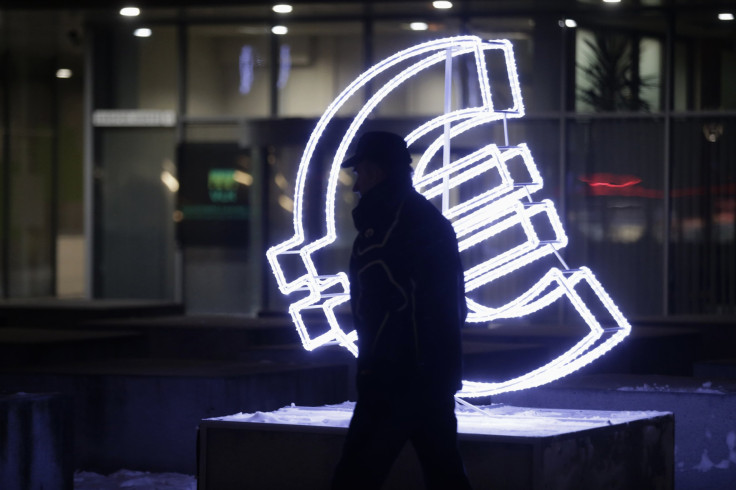ECB Set To Raise Growth Forecasts, Flesh Out Bond-Buying Plan

(Reuters) - Keen to keep a low profile over the Greek crisis, the European Central Bank will focus on improved growth prospects when it meets on Thursday and unveil some but not all the details of its 1 trillion euros-plus bond buying plan.
Meeting in Cyprus, the ECB will keep rates on hold, likely lift growth forecasts to reflect a string of positive data surprises but cut inflation projections as it incorporates the full effect of a dramatic oil price fall, backing its case to buy 60 billion euros worth of bonds a month from March to spur inflation.
The bank has a long way to go to convince markets. Only half of the economists polled by Reuters think bond buying will help inflation rise towards the target of close to but below two percent and half think the purchases will be extended beyond September 2016.
The ECB has said its money printing would last "at least" until September 2016 and until a "sustained adjustment" in the inflation path emerges.
Markets will be looking for how quantitative easing will work, when the buying will start, whether it applies to paper with negative yields and how the purchases will be distributed along the yield curve.
Anticipation of the QE programme has driven euro zone borrowing costs down to the point where Spain can borrow for 10 years at just 1.3 percent and investors actually pay for the privilege of lending to Germany for five years. Yields in Italy, Spain and Portugal dropped to record lows this week.
Another concern is whether the ECB will find enough bonds to buy as the market is flush with uninvested cash while banks are under obligation to hold top tier assets, like government debt.
"The massive ECB buying will start in times of stagnating supply at the bond market," SEB economist Thomas Köbel said. "We see some risks that the ECB may be unable to buy bonds at the targeted monthly rate of 60 billion euros."
The buying will start just as European economies appear to have turned a corner. ECB Executive Board member Peter Praet has already said the bank will likely lift its growth forecasts.
Fourth quarter growth beat expectations, recent consumption figures, particularly in Germany, have exceeded forecasts, sentiment indicators have turned up while growth is also poised for a boost from lower energy prices and a weaker euro.
Still, the bank could forecast deflation for 2015, sharply cutting its 0.7 percent inflation projection from December and could forecast it staying below target through 2017.
Inflation was running at -0.3 percent in February.
Greece will remain a headache but the ECB is desperate to stay out of the political debate over the country's future and the return of deposits to Greek banks since Athens secured an extension to its financial rescue last month has eased pressure on the bank to act
Greece's roughly 68 billion euros Emergency Liquidity Assistance appears sufficient for now and while the ECB may discuss once again accepting Greek bonds in return for funding, no decision is likely until a political deal is finalised.
Greece is close to running out of cash and needs new euro zone loans to avoid default. It can only get them if it implements reforms the previous Greek government promised, but which the new government has vowed to discontinue.
© Copyright IBTimes 2025. All rights reserved.





















